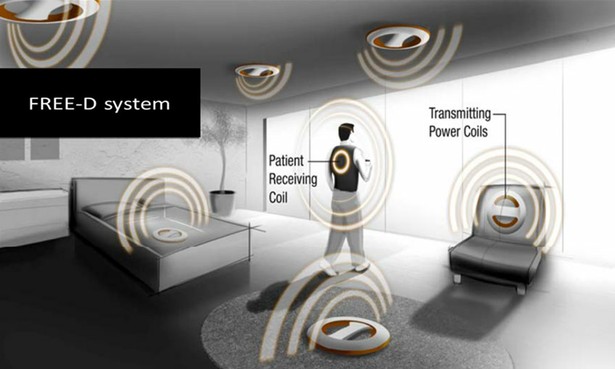
Here’s an innovation that might just make Dick Cheney smile.
Researchers from the University of Washington and University of Pittsburgh Medical Center are testing a wireless power transmission system that can be used to recharge mechanical heart pumps without a cord sticking out of the patient’s belly. The former vice president is perhaps the most famous person with a traditional mechanical heart pump, having received one a year ago.
As explained in this UW news article, the wireless transmission project is based on the concept of induction, with a transmitting coil sending out electromagnetic waves that are absorbed by a receiving coil that charges a battery.
Researchers envision a vest that could hold an external transmitter coil connected to a power cord or battery. A small receiver coil implanted under the patient’s skin would connect to a battery that holds enough power for about two hours, meaning the patient could be completely free for short periods of time to take a bath or go for a swim (current users of heart pumps cannot do either). Longer term, the researchers imagine additional power transmitters placed under a patient’s bed or chair, allowing patients to sleep, work or exercise at home unencumbered.
People involved in the project include the UW computer science and engineering associate professor Joshua Smith, a former Intel researcher in Seattle who has been working on wireless power technologies for the past six years.
The researchers presented their work at the recent American Society for Artificial Internal Organs meeting in Washington D.C., where it received an award for the most promising research in the development of artificial hearts.



